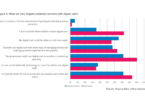Today the BIS Innovation Hub released the results of Project Rosalind, a central bank digital currency (CBDC) initiative with the Bank of England. It explored using application programming interfaces (APIs) to enable payment providers to integrate with the central bank ledger. The APIs worked with two different kinds of ledgers, both of which were blockchain based. However, the focus of the experiments was the APIs rather than the core system.
The tests trialed 18 digital pound use cases, ranging from straight forward merchant payments to a prototype of parent and child wallets. Various kinds of conditional payments and programmability was supported for payment providers, as well as offline payments. It also experimented with decentrailzed identity and verificable credentials for privacy.
“Active collaboration with the public and private sectors to identify and explore these use cases has been at the heart of this,” said Francesca Hopwood Road, Head of the BIS Innovation Hub London Centre. “We believe that Rosalind can make a significant contribution to how organisations across the globe are thinking about and engaging with the design of retail CBDC systems.”
Privacy is a high profile issue with CBDCs, and the trials involved the APIs sending pseudonymous information to the central bank, with personal information staying with the payment provider.
Regarding the APIs, a key find was that several simple modular APIs enables significant standardization and flexibility for complex use cases. They also trialed allowing service providers to add bespoke functionality. However, there’s a concern that this flexibility could result in inconsistencies for the user experience.
The two different blockchains used were Hyperledger Besu for an account-based digital pound and Hyperledger Fabric for token-based. Quant’s Overledger technology was used for multiple central bank ledger simulations and to enable the testing of the APIs with the two distributed ledgers. UST was the technology consultant.
Meanwhile, the Bank of England has previously stated that a digital pound will not be programmable at the core layer. It is currently running a CBDC consultation until the end of this month. While the Bank has not decided to proceed with a digital pound, Deputy Governor Sir Jon Cunliffe previously gave it a more than 50% chance of going ahead.






